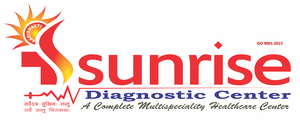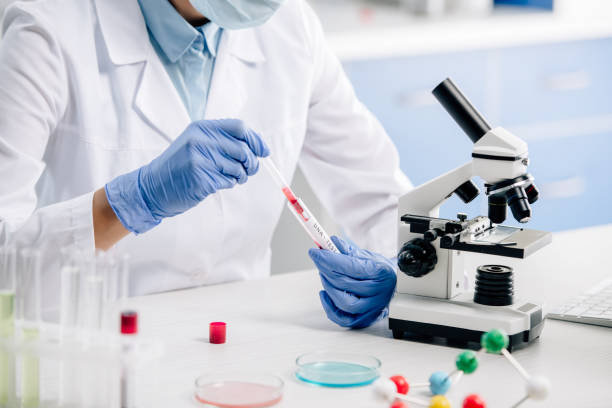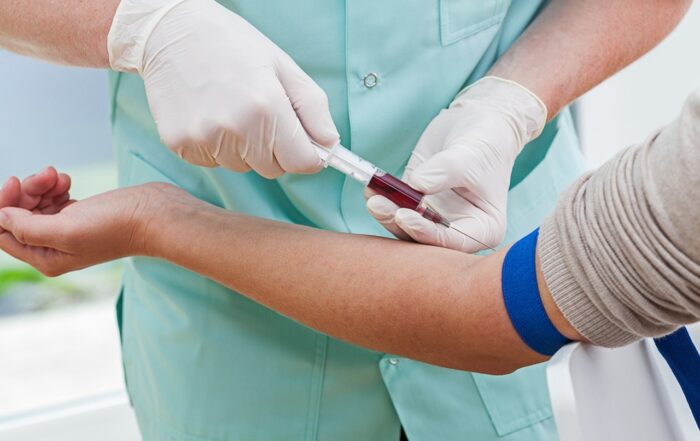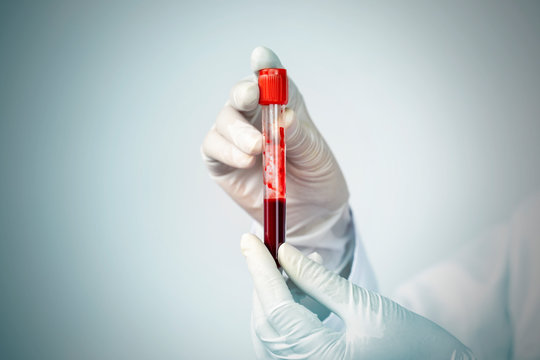HIV Test in Pune
Reports are available by Email as well as on WhatsApp
Email: operationsunrise1@gmail.com
What is HIV Testing?
HIV testing, also called HIV screening, is the only way to know if you have the virus.
Several types of tests check your blood or other body fluids to see whether you’re infected. Most can’t spot HIV right away, because it takes time for your body to make antibodies or for enough of the virus to grow inside you.
Importance of HIV Testing:
If you have the virus, finding out quickly means you can start treatment right away so you can feel better and live a long, full life. You can also take steps so you don’t pass HIV to other people.
Pregnant women should get tested because early treatment means you probably won’t pass it to your baby.
Who Should Get an HIV Test?
The CDC recommends that everyone in the United States between the ages of 13 and 64 get tested for HIV at least once.
You should be tested more often — at least once a year — if you’re at higher risk of getting HIV, including if you:
- Have had several sexual partners
- Had unprotected sex with someone who is or could be HIV-positive, including someone whose sexual history you don’t know
- Injected drugs with a needle, syringe, or other device that someone else used first
- Have had or are getting tested for tuberculosis, hepatitis, or any sexually transmitted disease, including syphilis, gonorrhea, chlamydia, or herpes
- Have had sex for drugs or money
- Had sex with someone who has a history of any of these
How Can Testing Help You?
The only way to know for sure whether you have HIV is to get tested.
Knowing your HIV status gives you powerful information to help you take steps to keep you and your partner(s) healthy.
- If you test positive, you can take medicine to treat HIV . People with HIV who take HIV medicine as prescribed can live long and healthy lives. There’s also an important prevention benefit. If you take HIV medicine daily as prescribed and get and keep an undetectable viral load, you have effectively no risk of transmitting HIV to an HIV-negative partner through sex.
- If you test negative, you have more prevention tools available today to prevent HIV than ever before.
- If you are pregnant, you should be tested for HIV so that you can begin treatment if you’re HIV-positive. If an HIV-positive woman is treated for HIV early in her pregnancy, the risk of transmitting HIV to her baby can be very low.
Is Self-Testing an Option?
Yes. HIV self-testing allows people to take an HIV test and find out their result in their own home or other private location. You can buy a self-test kit at a pharmacy or online, or your health care provider may be able to order one for you. Some health departments or community-based organizations also provide self-test kits for free.
Read the U.S. Food and Drug Administration’s (FDA) fact sheet on the OraQuick In-Home HIV Test, the only FDA-approved in-home HIV test.
HIV Testing Types
Antibody screening tests
These tests check for protein that your body makes within 2 to 8 weeks of an HIV infection. They’re also called immunoassay or ELISA tests. They’re generally very accurate.
Rapid versions of these blood and oral fluid tests can give results in 30 minutes or less, but they may give negative results even when you’re infected. This is called a false negative.
Antibody/antigen combination tests
The CDC recommends these blood tests. They can detect HIV earlier than antibody screening tests. They check for HIV antigen, a protein called p24 that’s part of the virus and shows up 2 to 4 weeks after infection. They also check for HIV antibodies.
A rapid antibody/antigen test can give results in 20 minutes.
Nucleic acid test (NAT)
This is also known as an RNA test. It looks for the virus itself and can diagnose HIV about 10 days after you’ve been exposed. It’s expensive, so it’s usually not the first choice. But if you’re at high risk and you have flu-like symptoms, your doctor may want to use it.
In-home test kits
Kits that test your blood or oral fluids are available in the U.S. You can buy them at a local store or online. Pick one that’s FDA-approved.
Home tests are slightly less sensitive than in-person lab tests.
What to Expect
For a lab test, you might need to call your doctor to schedule it. Some public health clinics take walk-ins.
A technician will take a small blood sample and send it to a lab. Some immunoassay tests check your urine or fluids from your mouth (not saliva), but there aren’t as many antibodies in these, so you may get false negatives.
With home blood tests, you prick your finger to get a small blood sample that you send to a lab. You call to get your result within a few business days, and you don’t have to give your name. If it’s positive, the lab will also do a follow-up test to double-check.
With home oral fluid tests, you swab your upper and lower gums and test the sample in a vial. You get a result in 20 minutes. About one in 12 people who are infected get a false negative from this test. If it’s positive, get a lab test to confirm.
HIV Test Results
Some tests are anonymous, meaning your name isn’t tied to the result. Others are confidential: Your information is attached to the result, but it’s protected by privacy laws.
Positive test results
A positive test result means there are traces of HIV in your body. If you had a rapid test, get a standard lab test to confirm it. If you had a lab test, more detailed tests of your blood can help confirm your diagnosis:
- Western blot or indirect immunofluorescence assay
- Antibody differentiation, between HIV-1 and HIV-2
A positive HIV test doesn’t mean you have AIDS, the most advanced stage of the disease. HIV treatment can keep you from getting AIDS, so talk to your doctor right away about starting medications called antiretroviral therapy (ART). These drugs lower the amount of the virus in your body, sometimes to a point where a test can’t spot it. They also protect your immune system so your HIV infection doesn’t become AIDS.
Negative test results
If your result is negative, you can take steps to protect yourself from HIV. They include practicing safe sex and taking medicine called pre-exposure prophylaxis (PrEP).
Even if your test is negative, your partner can still have the virus. Talk with them about getting tested.
It could take as long as 6 months for you to have enough antibodies to get a positive result on some tests. If it’s been 3 months or less since you might have been infected and your test result is negative, get another test at 6 months to be sure.
Why Sunrise Diagnostic Centre?
Sunrise Diagnostic Centre (A Unit of Aadishakti Healthcare Pvt. Ltd.) is an integrated healthcare model, providing multiple healthcare services under one roof, in a state-of-the-art facility, equipped with ultra-advanced medical equipment with cutting-edge technology.
Sunrise Diagnostic Centre is NABL and ISO Certified & Trusted by 122 Doctors & 30+ Hospitals, We offer a comprehensive range of 4000+ clinical laboratory tests and Home Collection Services in Pune. which are used for prediction, early detection, diagnostic screening, confirmation and/or monitoring of the disease.
Book a blood test or expert health check-up package online with Sunrise Diagnostic Centre-
Call Now: 9028801188, 9028566644, 9028566611
Frequently Asked Questions
Prompt, early medical treatment and a healthy lifestyle can help you stay well. We have more and better treatments today, and people are living longer and with a better quality of life than ever before. In fact, depending on what else is going on with their health, HIV-infected persons who get on and stay on their medicines can expect to live almost as long as people who don’t have HIV.
You’ll need to keep your doctor’s appointments, take your HIV medicines exactly as directed, and take steps so others don’t get the virus from you.
Most rapid tests and self-tests are antibody tests. A rapid antigen/antibody test done with blood from a finger stick can usually detect HIV 18 to 90 days after exposure. An antigen/antibody lab test using blood from a vein can usually detect HIV 18 to 45 days after exposure.
HIV antibody tests, confirmed by the second test, are not affected by other circumstances. This includes infections, medications, most vaccinations, putting on weight, eating or drinking anything before the test, use of alcohol or recreational drugs, mouthwash or time of day.
4.8 Google Ratings and 3085+ Reviews
If you are looking for HIV test in Pune then contact us now!
Frequent Searches
HIV Test | HIV Test Pune | HIV Test in Kothrud | HIV Test center in Kothrud, Pune | HIV Test Near Me | HIV Test Centre near me | HIV Test Center in Karve Road | HIV Test in Karve Nagar | HIV Test in Pune | HIV Test Cost in Pune | HIV Test Centres in Pune
Call Us Now!
9028801188, 9028566644, 9028566611
Serving Areas
HIV Test in Karve Nagar | HIV Test near Karve Road | HIV Test in Kothrud | HIV Test in Bavdhan | HIV Test near Viman Nagar | HIV Test near Vishrantwadi | HIV Test near Wadgaon Sheri | HIV Test near Kharadi | HIV Test near Katraj | HIV Test near Dhankawadi




